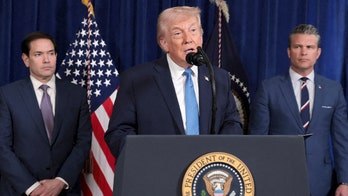Attorney General Eric Holder on Tuesday stood by his decision to send five alleged Sept. 11 conspirators to New York for trial, saying his team carefully considered the potential downsides of taking the case out of the military commission system but ultimately determined federal court was the best option.
Despite growing concerns that trying Khalid Sheikh Mohammed and others in civilian court triggers a host of complications for the prosecution, Holder said he's confident the cases will be "successful."
"We looked at a variety of things -- about the questions of admissibility of evidence ... what problems we might have with regard to any witnesses," Holder said. "I mean the whole variety of things that we considered in making those judgments."
But some lawmakers and analysts were not so convinced Holder's case is airtight.
Unlike military courts, civilian courts require warrants for evidence -- warrants which are not typically obtained on the battlefield. Civilian courts also have much stricter rules for hearsay than military courts. Plus any defendants who were not read their Miranda rights could raise that as an issue.
Rep. Peter King, R-N.Y., said a conviction is "not automatic."
"Odds are that he will be convicted of something but in the federal courts, it's the luck of draw as to what judge you get," King told Fox News. "And you could get a judge who would say because he was arrested without a warrant, because he was not read his Miranda rights, because he was held seven years without a trial, all of this is a terrible injustice and therefore I'm going to dismiss the charges. I doubt any judge would do that, but it's going to make it more difficult to get the conviction."
Another obvious pitfall for the Justice Department would be allegations of torture from the defendants' counsel. Mohammed's history of being waterboarded is well-documented. Though Bush administration officials have defended the practice as being useful in extracting critical information, waterboarding has since been banned and is considered torture by some lawmakers.
Charles Stimson, a former deputy assistant defense secretary for detainees, said these allegations could make the prosecution's case quite fragile.
"If any of these statements ... get thrown out because of this argument that they were tortured and that nothing that came out of their mouths can be believed, that the whole case is tainted, it's a house of cards," he said.
Others argue that the trial just gives Mohammed the platform he wanted all along. Thomas Kean, chairman of the 9/11 Commission, told a local radio station Tuesday he's concerned the trial will serve as a "propaganda" tool for the defendant.
The whole process could take years, and the inevitable involvement of classified information muddies things further.
"The issues around classified information are enormously complicated and can occupy sometimes years of litigation before a case goes to trial to figure out what's going to be available to whom," said Benjamin Wittes, a senior fellow with the Brookings Institution.
Fox News' Shannon Bream contributed to this report.
























